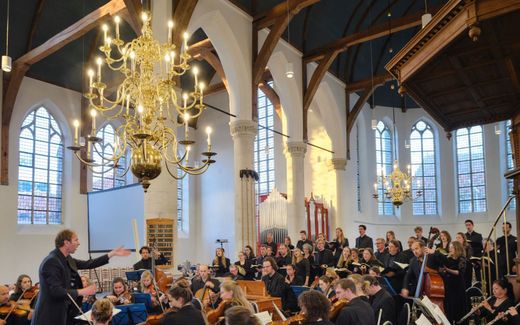Free churches Sweden fail to capture young people

Photo Unsplash, Jud Mackrill
Northern Europe
The group of young people in urban congregations of free churches in Sweden is much smaller than it should be, compared to statistics of the general population.
That is shown by research from a Swedish pastor and statistician Öyvind Tholvsen, Dagen reports. Tholvsen is the pastor of the Lugnet Church in Falun and belongs to the Evangelical Free denomination. He looked at four denominations: the Pentecostal Movement, the Equmenia Church, the Evangelical Free Church and the Swedish Alliance Mission. About 1,205 congregations participated in the research.
In general, the age distribution of churchgoers shows that there are relatively few young adults between the ages of 21 and 30 who are members of a church. On the other hand, there is a relatively large number of older people over 60 years old, compared to the general population in a specific town.
However, what stands out from the research report is the enormous gap between the share of young adults in the church and the share of young adults in the general population. In general, young people between 21 to 30 years old make up 19.5 per cent of the population of large cities. However, of churchgoers, only 9.5 per cent is between 21 and 30 years old. That results in a gap of 10 per cent. In rural areas, this difference is only 3.1 per cent, the research shows, according to Dagen. Young people in rural areas make up about 12.4 per cent of the general population and about 9.3 per cent of the church members.
Parishes are unable to keep the interest of students
More young people live in the cities than in rural areas because colleges and universities attract students from all over the country. However, the statistical numbers show that churches are unable to capture the interest of all Christian young adults who move to the city.
Nevertheless, Dagen notes that this does not mean that all young Christians who move to the cities lose their faith. “Of course, there are young adults and students who participate in worship services, small groups and other activities in the churches without being official members on paper”, the Swedish daily writes. Thus, these people are not written in membership records and could also not be taken into account in the research.

Öyvind Tholvsen stresses to Dagen that it is essential that parishes in cities work on a unique parish culture which attracts young people. “Young adults are in an important phase in life where they develop their worldview and beliefs”, he says to the Swedish daily. “They need vibrant congregations where they can meet other young people, to think about life.”
Migrant churches and newly established congregations in cities generally contain a higher proportion of young adults than the average church in the same place, Dagen reports.
Student pastor: It is crucial that churches invest in reaching students
Fredrik Wärn is not surprised by the research results, Dagen writes. Wärn is the pastor of the Pentecostal congregation in the Swedish place of Umeå. He sees the statistics as a reminder that there is work for the church to do. “We must work to be a voice that is seen and heard in the city, not the least on campuses and at universities.”
The pastor says to Dagen that the church needs actively seek contact with students as they are busy with their studies. Thus, the church needs to reach out to them to gain them. If churches fail to do so, “students experience it as a large step to find a congregation themselves.” According to the Wärn, students do have a need to meet other young adults. “Different groups, therefore, become significant for them. They allow students to share their questions about life with each other and talk about current issues from a Biblical perspective and pray together.”
Activities for young people
Eveline Söderblom recognises the need for social contacts that young adults have, she says to Dagen. Söderblom is the chairman of the young-adults council in the Immanuel Church in Örebro, a parish within the Evangelical Free Church. At the same time, she emphasises that the church should continually check the real need of young adults. “Young adults experience many changes. They move, meet a partner, graduate, change from community and start a family. Then it is important to be able to process and dig a little in their faith”, she says.
At her church, Söderblom organises lunches after the Sunday services once a month for young adults. Furthermore, young adults can gather for conversations once in a while and attend teaching evenings on current topics and worshipping sessions, among other activities.
Student pastor Mattias Sennehed from Linköping says to Dagen that churches should consciously focus on investing in young adults and students. On the one hand, he thinks that a church should try to connect to current issues and societal dilemmas and worries. Still, on the other hand, he finds it even more crucial that congregations help young adults to grow in their faith. “Otherwise, congregations will lose many people from this age group as they get older”, he asserts.
Related Articles






